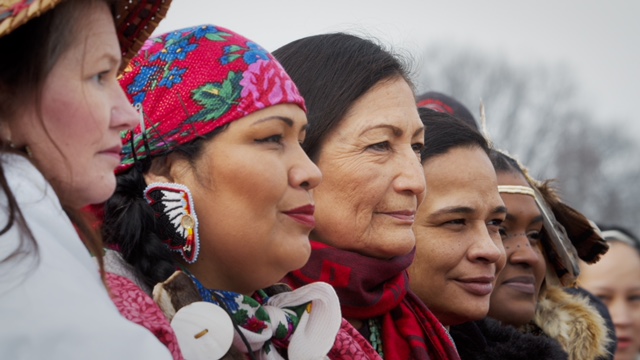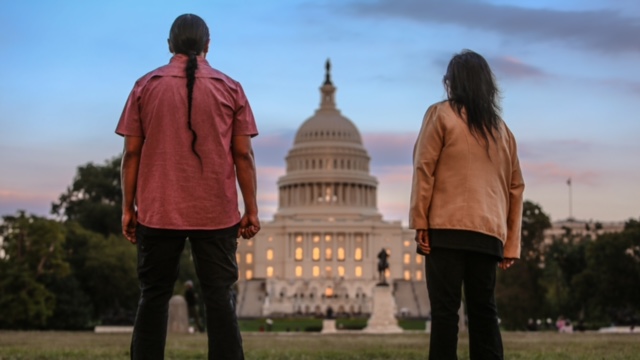
I hope you’re safe and remaining hopeful despite the horrific world events taking place. The Russian invasion of Ukraine highlights once again how important it is for people everywhere to remain sovereign and free of tyranny. My heart goes out to all who are now suffering through another needless, bloody war.
Perhaps it will lend you some comfort to know that there is good news this week from Standing Rock. This Wednesday, tribal leaders from across the Great Sioux Nation will have an opportunity to sit down with the U.S. Army Civil Works and relay our concerns about the Dakota Access pipeline (DAPL). After years of our #NoDAPL resistance falling on deaf ears — as highlighted by Standing Rock Chairwoman Janet Alkire in our new video, co-produced with the tribe — the Army finally reached out to Standing Rock. This is a potential turning point, though we are keeping our expectations modest.
Watch: In our new video, Standing Rock Sioux Tribe Chairwoman Janet Alkire discusses the importance of tribal input and gaining our consent for projects like DAPL.
We originally expected the Army Corps of Engineers to release its DAPL Environmental Impact Statement (EIS) earlier this month. But that’s now on hold, pending our coming conversation about this dangerous pipeline. This opportunity to have the appropriate government officials really listen to our concerns is long overdue.
Of course, given the long history of broken promises by the U.S. government to Native People, I take everything with a grain of salt and won’t celebrate prematurely. We must continue to stand ready to protest the EIS, should it eventually be released in any form that doesn’t fully address our concerns.
Right now, I’m happy to say we have some additional leverage. The meeting with Civil Works will happen against the backdrop of a huge win for Standing Rock in the Supreme Court this past week. Justices shut down DAPL’s attempt to make an end-run around the environmental oversight process.
Solidarity remains paramount if we are to achieve our goal of ending DAPL once and for all. As people from many nations gathered for our original NoDAPL stand in 2016 and ‘17, Wednesday’s meeting will bring together leaders from throughout the Oceti Sakowin — our Great Sioux Nation. We will, of course, report on the results of that conversation to you. So, please continue to stay with us. We must remain vigilant, united, and ready to act.
Wopila tanka — my deep gratitude to you for your friendship!
Chase Iron Eyes
Co-Director and Lead Counsel
The Lakota People’s Law Project

Lakota People’s Law Project
547 South 7th Street #149
Bismarck, ND 58504-5859
The Lakota People’s Law Project is part of the Romero Institute, a nonprofit 501(c)(3) law and policy center. All donations are tax-deductible.




 Here’s a promotional still of Secretary Haaland and other sisters in the fight for Indigenous justice. This film is really beautifully shot.
Here’s a promotional still of Secretary Haaland and other sisters in the fight for Indigenous justice. This film is really beautifully shot.